|
Every editorial report we write for our authors should achieve 7 goals. Some benefit us, some benefit our clients, but they’re all connected. If you feel your report-writing skills could do with a boost, use this goal-based framework to pep things up.
Let's look at the goals in brief; then we'll dig deeper.
Goals that benefit the editor
Goals that benefit the client
Efficiency means achieving the three goals that benefit the client without compromising on one iota of quality and without damaging our productivity. We are in business, after all.
Creating detailed editorial reports can eat into an editor’s hourly rate. It’s easy – even for experienced sentence-level editors – to omit the time for report-writing when creating a quote; I’ve done it myself. We focus on the number of words per hour we edit, based perhaps on a sample. Or perhaps we have included the report-writing component in our calculations but the author wants to negotiate on price. Every efficiency we incorporate allows us greater choice about whether to accept or reject a client’s proposal. Goal 2: Demonstrate editorial excellence
Our second goal is to demonstrate editorial excellence. Those of you who are members of a national editorial society might well be bound by a code of practice that demands this.
That’s the case for members of the Chartered Institute of Editing and Proofreading (CIEP), which says in its CoP: ‘Good communication between client/employer and freelance/employee is essential.’ Editorial excellence isn’t just about being an expert in typo hunting, grammar correction and stylistic revision. Neither does it end with clarity on the project brief or issues of privacy, confidentiality and security. It’s also about communicating the why of our edits. Comprehensive editorial reports are the perfect communication tool, and the reason why we shouldn’t skimp. Goal 3: Build trust
When we communicate the why of our decisions, we build trust.
If a client is anxious about how we’ve edited their work because they don’t understand the changes we’ve made and/or because we’re new to them, trust is low. Part of our job is to earn it. A comprehensive editorial report that demonstrates a deep knowledge of our craft creates author confidence. And that’s the key to a healthy business relationship. Goal 4: Compel future commissions and recommendations
A client with a detailed editorial report that demonstrates excellence and builds confidence in your ability is more likely to do the following:
Now let's look at the benefits for the author. Goal 5: Offer a comprehensive learning tool
Our fifth goal is to provide our authors with an outstanding learning tool, rich in problem/solution-focused detail, which they can use to hone their writing craft.
The independent-author market is huge, and many in the community lack experience – they’re right at the beginning of their writing journey. They might well have talent by the bucket load but the line work we do is nevertheless extensive. An editorial report gives us the chance to offer our guidance in a format that’s accessible and clear. And because it’s separate from their book file, they can refer to it time and again. A comprehensive learning tool includes strengths, too. Writers can learn as much from knowing what they’re doing well – and should continue doing – as from knowing how they can up their game. Goal 6: Take a mindful approach
Our penultimate goal is to show mindfulness. As editors, we can never forget that every one of our author clients has a choice – and they chose us. They also have a passion – their book.
It takes commitment to write a story, and sometimes not a little courage to place it in the hands of a professional editor, particularly one they haven't worked with before. That decision comes with risk. For the editor, being selected is a privilege rather than an entitlement. We must respect that choice, the risk taken, and their investment (time and money). Yes, we should report on weaknesses; that’s how they’ll improve their sentence-level craft. But we must do so gently and respectfully, and complement that analysis with reflection on their strengths. Goal 7: Provide a solution-based critical review
Many indie-author book files end up in our editing studios without having been evaluated by a developmental editor, a critiquing editor, an experienced beta reader or even a colleague or friend in a writing group.
Our reports need to offer a critical review that explores the book’s sentence-level strengths and weaknesses. What’s essential is that we offer solutions to any weaknesses we identify. Without those, we risk creating a shopping list of what was good and what wasn’t. That kind of analysis won’t help the author grow as a writer. Neither will it reflect our editorial excellence. Want to learn how to do it, and love it? If you’re a sentence-level editor and think your reporting skills could do with a boost, or a new editor who wants to nail it from the start, take a look at my new course, How to Write the Perfect Fiction Editorial Report.
Louise Harnby is a line editor, copyeditor and proofreader who specializes in working with crime, mystery, suspense and thriller writers.
She is an Advanced Professional Member of the Chartered Institute of Editing and Proofreading (CIEP), a member of ACES, a Partner Member of The Alliance of Independent Authors (ALLi), and co-hosts The Editing Podcast. Visit her business website at Louise Harnby | Fiction Editor & Proofreader, say hello on Twitter at @LouiseHarnby, connect via Facebook and LinkedIn, and check out her books and courses.
2 Comments
What do people say about your editing and proofreading business when you’re not in the room? Whatever it is, that’s your brand. Here’s what happens when you show who you are by talking about the problems you solve for others.
You’ve got work coming in but your analytics make you wonder whether you should be getting more requests to quote, given the volume of traffic.
Or perhaps you’re a new entrant to the field and have just begun to think about who you want to work with and what your message is. Do yourself a favour and take a look at your branding. Is it on track?
Brand blurriness
I spent the first five years of my freelance career specializing in proofreading for publishers, first in the social sciences, then in fiction. Over time, my client base began to shift. Now, I do sentence-level editing exclusively for indie fiction authors. Here’s the thing, though. For a long time, my website and directory entries didn’t reflect this shift. And while the content on my blog began to reflect my passion for supporting self-publishers, especially beginner writers, you wouldn’t have known this from the way I communicated my business mission in the rest of my marketing materials. I was playing safe. I was nervous. I was getting a lot of visitors to my website and a lot of requests to quote. However, only about 25% of those requests were from my target audience – the indie authors. And while the other 75% was work I always referred elsewhere, I felt safe having that as an option. If it ain’t broke, don’t fix it. That was my mantra. I had enough work that I wanted to do, and plenty of offers to quote for work that I didn’t want to do. Still, I spent a lot of time sending work elsewhere. And I couldn’t quite shake the feeling that a lot of effort was going into marketing that ended up as jobs in other people’s hands. Why not just make things leaner?
Discovering the problem
I found my courage and decided to make some changes. I amended the lead text on my page to make it clear that I was a fiction specialist. And I readied myself for losing the 75% – those requests to quote that had made me feel all warm, cosy and safe for so long. Over the next three weeks the numbers plummeted. Most of those students, businesses and academics stopped getting in contact. But things were leaner. I was spending less time sending work elsewhere that I didn’t want to do anyway. I became more efficient, more productive, more focused. I was using my time wisely. I was streamlining my business. I felt great, right? Honestly? I’d lost my safety net. And I didn’t feel great at all. I reminded myself that I’d been fully booked for the past two years without having to dip into that 75%, so I should just relax. As you were – that was my new mantra. It’ll be fine – that was my other new mantra. Stop overthinking things – yet another new mantra. Louise Harnby | Mantra Queen is what I should have changed my business name to. I took a look at my home page, my directory entries, my business cards, and I noticed something. All the passion I felt about championing my target clients was missing. My branding was off.
Making the message about the client
I completely overhauled my home page, resources page, my SfEP directory entry, my Reedsy profile, even my blog, so that everything started to work together in harmony. Now I’m telling my target client group about what makes me tick but in a way that focuses on solutions to their problems. It’s all about them, not about me. Here’s what I learned. Even if you’re findable, when your message doesn’t make your client feel like you get them, then you’re doing a lot of marketing work for a poor return. And even if that return is enough to keep your schedule full, it’s not giving you as much choice as you could have if your message was on point.
Getting in the right gear
Being findable but having a weak brand is like driving along a motorway at 70 miles an hour in second gear. The car has to work really hard to get you where you want to go! Getting the branding right is like slipping into cruise-control. Here’s what happened when I rebranded:
Sorting out our branding is the most powerful gift we can give our businesses. If we don’t understand our own brand values, we can’t expect potential clients to. Make sure yours are evident at every touchpoint of your editorial business.
If you want to learn how to do it, my online course Branding for Business Growth will teach you what you need to know. I created this course specifically for editors, because I'm one and I know what the challenges are. For a shorter course on building trust with ideal clients, try To Visibility and Beyond.
To find out more about either of these courses, visit the Courses page.
Louise Harnby is a line editor, copyeditor and proofreader who specializes in working with crime, mystery, suspense and thriller writers.
She is an Advanced Professional Member of the Chartered Institute of Editing and Proofreading (CIEP), a member of ACES, a Partner Member of The Alliance of Independent Authors (ALLi), and co-hosts The Editing Podcast. Visit her business website at Louise Harnby | Fiction Editor & Proofreader, say hello on Twitter at @LouiseHarnby, connect via Facebook and LinkedIn, and check out her books and courses.
In this episode of The Editing Podcast, Denise and Louise talk about adverbs, and how to use or remove them purposefully.
Click to listen to Season 2, Episode 4
Summary
Listen to find out more about:
Editing bites
Other resources
Music credit ‘Vivacity’ Kevin MacLeod (incompetech.com). Licensed under Creative Commons: By Attribution 3.0 License http://creativecommons.org/licenses/by/3.0/
Louise Harnby is a line editor, copyeditor and proofreader who specializes in working with crime, mystery, suspense and thriller writers.
She is an Advanced Professional Member of the Chartered Institute of Editing and Proofreading (CIEP), a member of ACES, a Partner Member of The Alliance of Independent Authors (ALLi), and co-hosts The Editing Podcast. Visit her business website at Louise Harnby | Fiction Editor & Proofreader, say hello on Twitter at @LouiseHarnby, connect via Facebook and LinkedIn, and check out her books and courses.
If you're suffering from yet another dry spell, this webinar will help you get editing and proofreading work in the next few days and weeks.
I'll show you 10 steps you can take to move out of famine mode quickly.
Forget theory. This is all about doing ... step-by-step guidance on short-term fixes that will give you peace of mind in the now, and head space to dig deeper in the future.
Click on the button below to find out more.
Louise Harnby is a line editor, copyeditor and proofreader who specializes in working with crime, mystery, suspense and thriller writers.
She is an Advanced Professional Member of the Chartered Institute of Editing and Proofreading (CIEP), a member of ACES, a Partner Member of The Alliance of Independent Authors (ALLi), and co-hosts The Editing Podcast.
|
BLOG ALERTSIf you'd like me to email you when a new blog post is available, sign up for blog alerts!
TESTIMONIALSDare Rogers'Louise uses her expertise to hone a story until it's razor sharp, while still allowing the author’s voice to remain dominant.'Jeff Carson'I wholeheartedly recommend her services ... Just don’t hire her when I need her.'J B Turner'Sincere thanks for a beautiful and elegant piece of work. First class.'Ayshe Gemedzhy'What makes her stand out and shine is her ability to immerse herself in your story.'Salt Publishing'A million thanks – your mark-up is perfect, as always.'CATEGORIES
All
ARCHIVES
July 2024
|
|
|
|


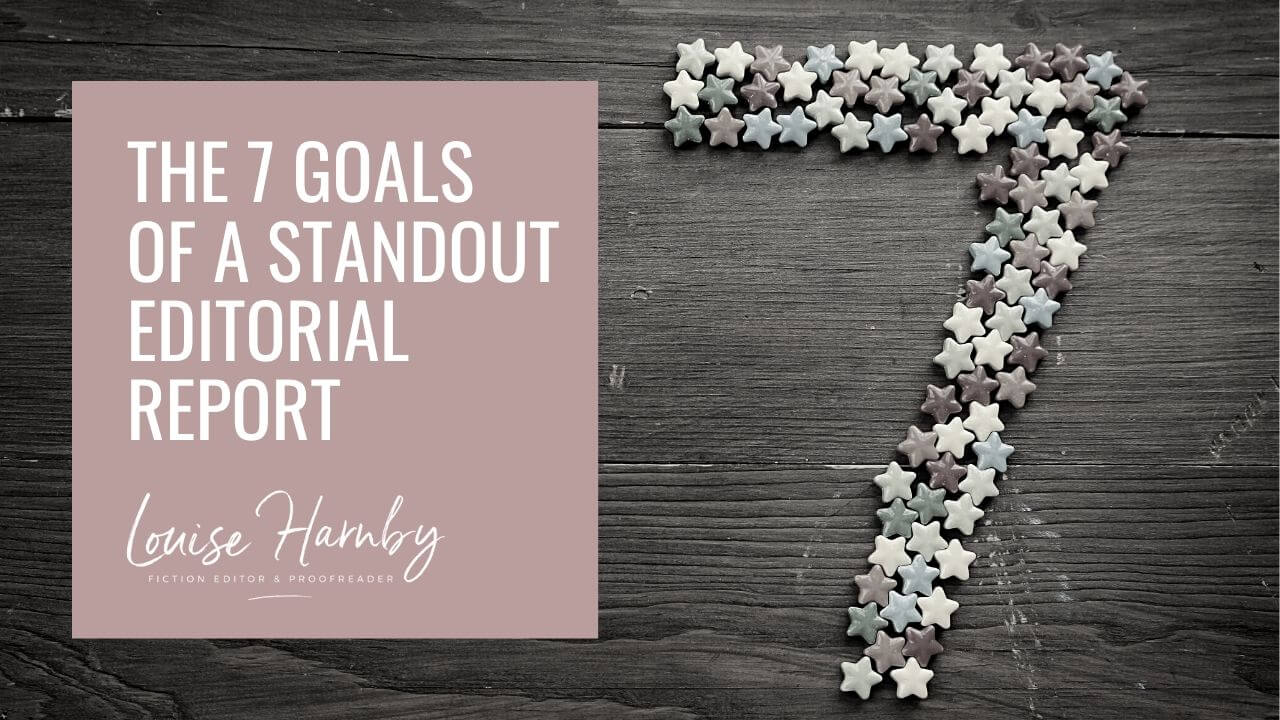
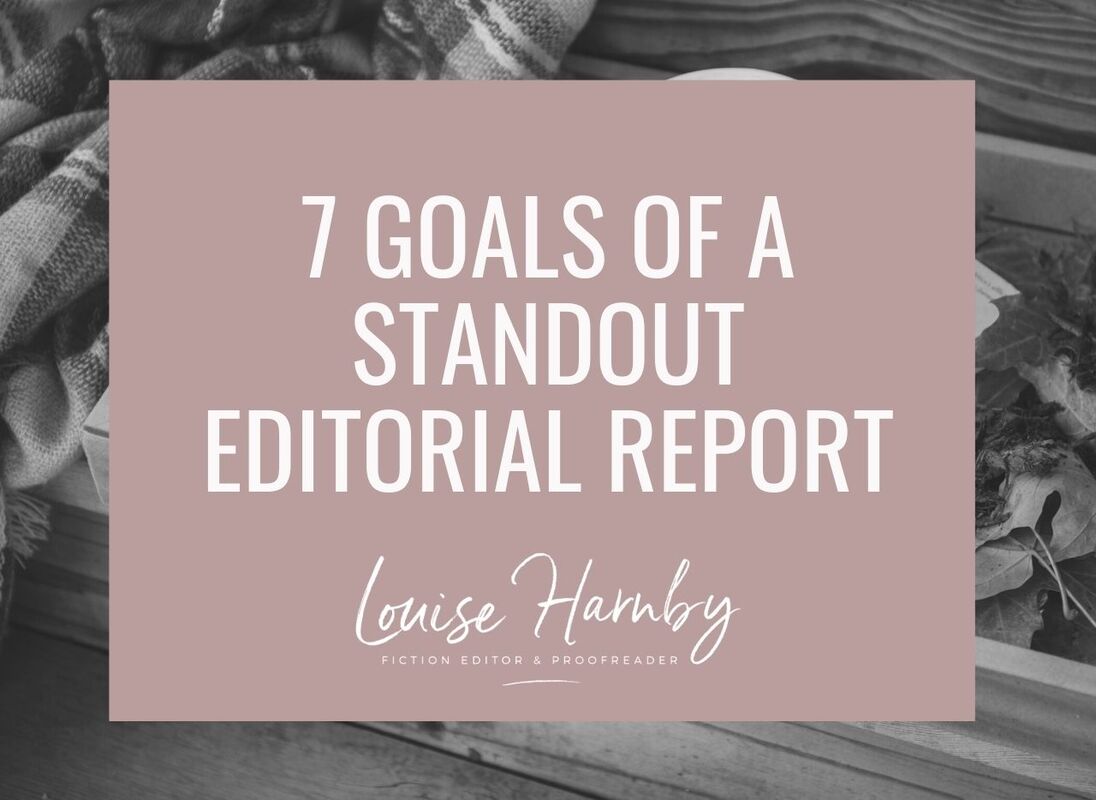
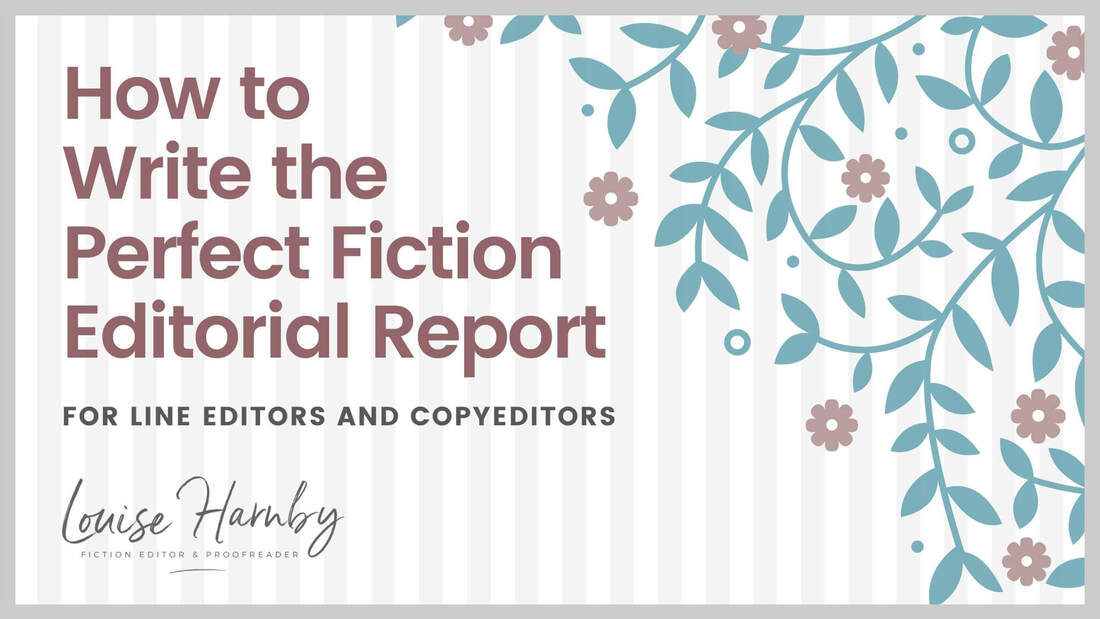
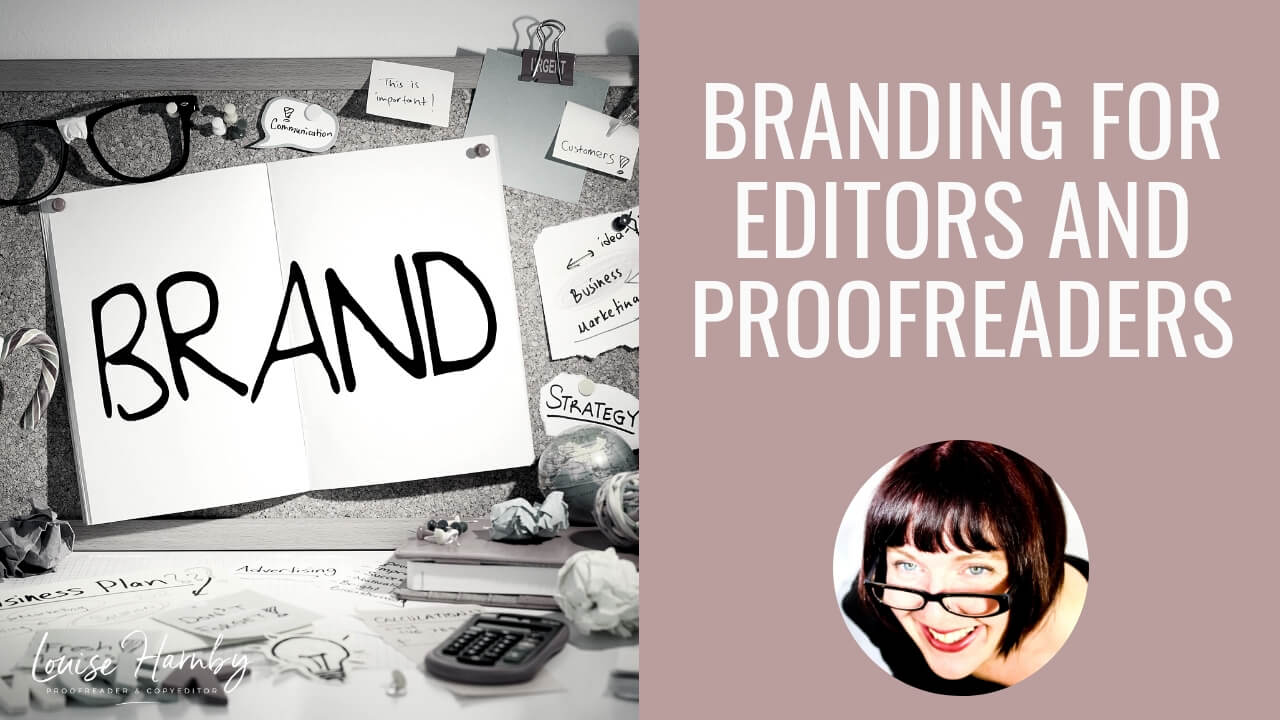
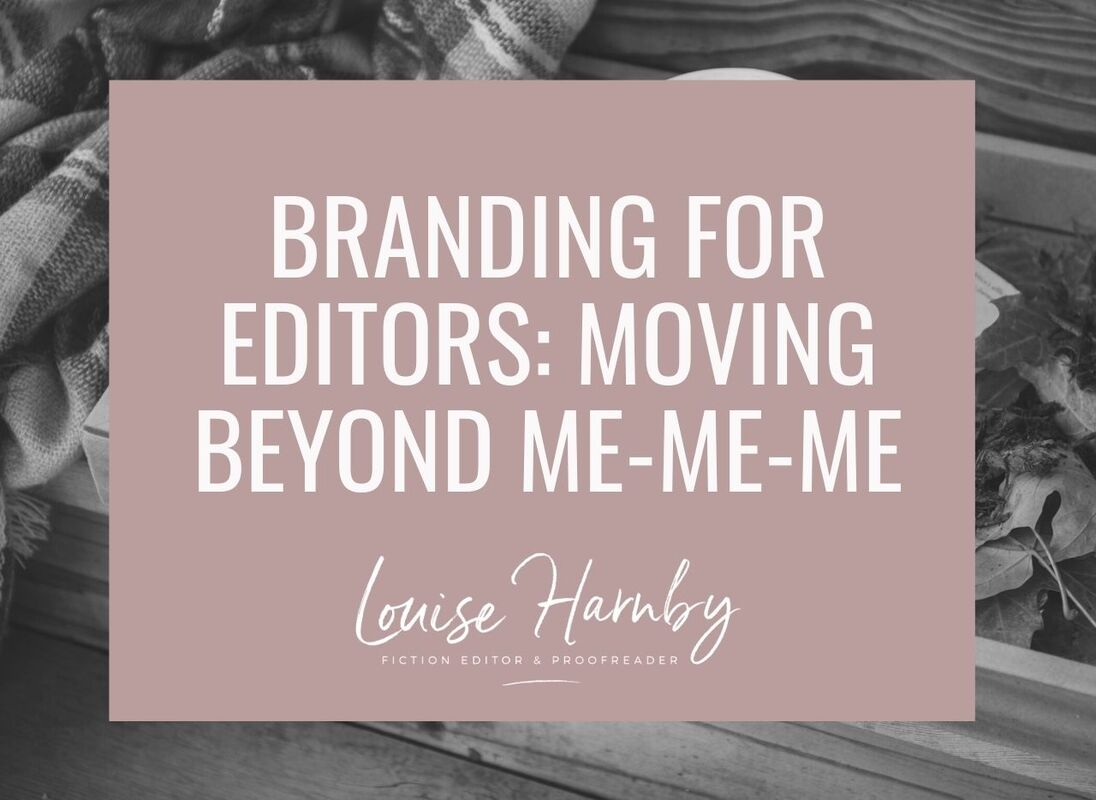



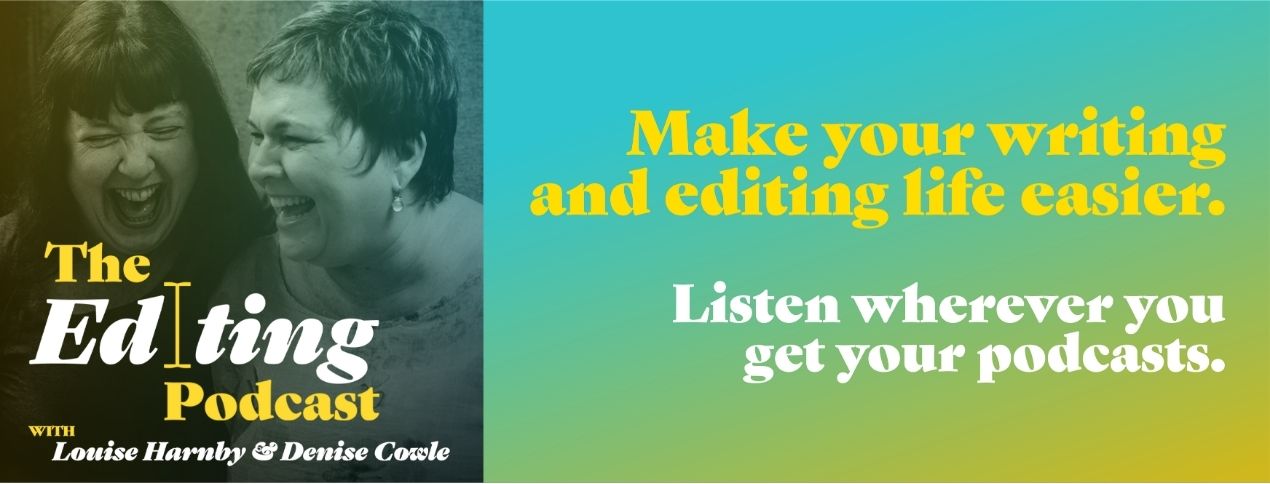
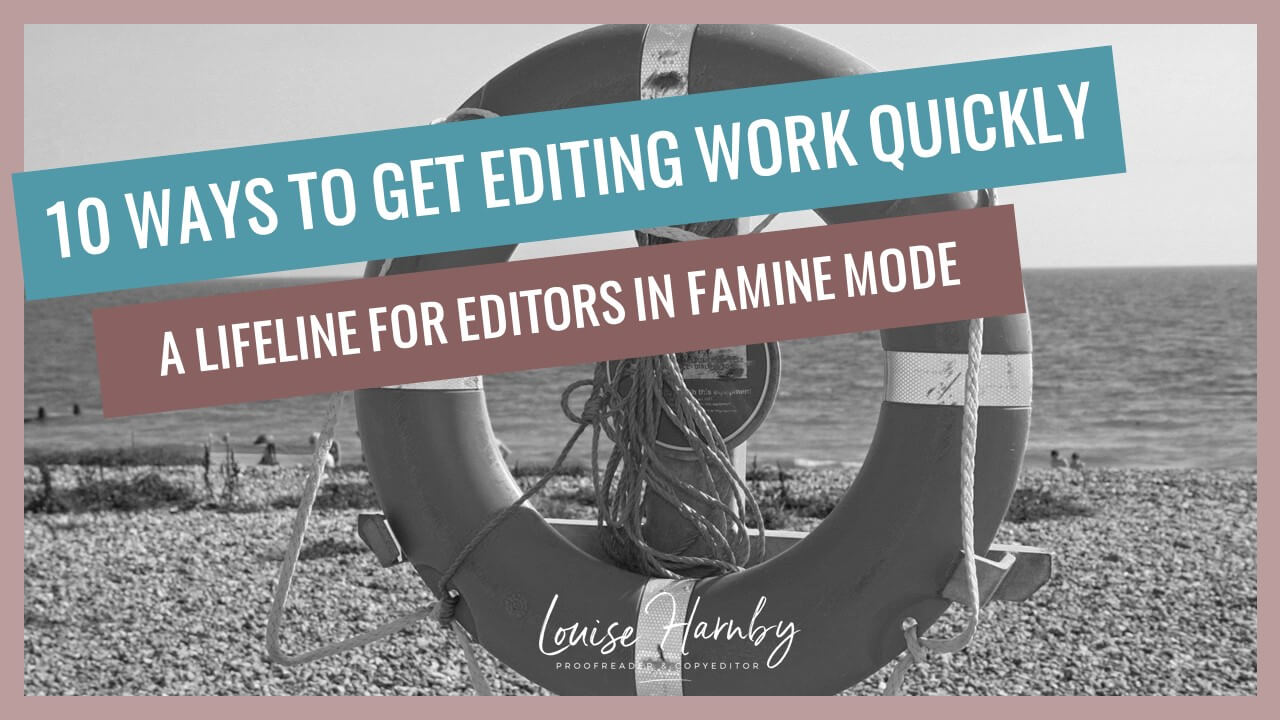













 RSS Feed
RSS Feed





